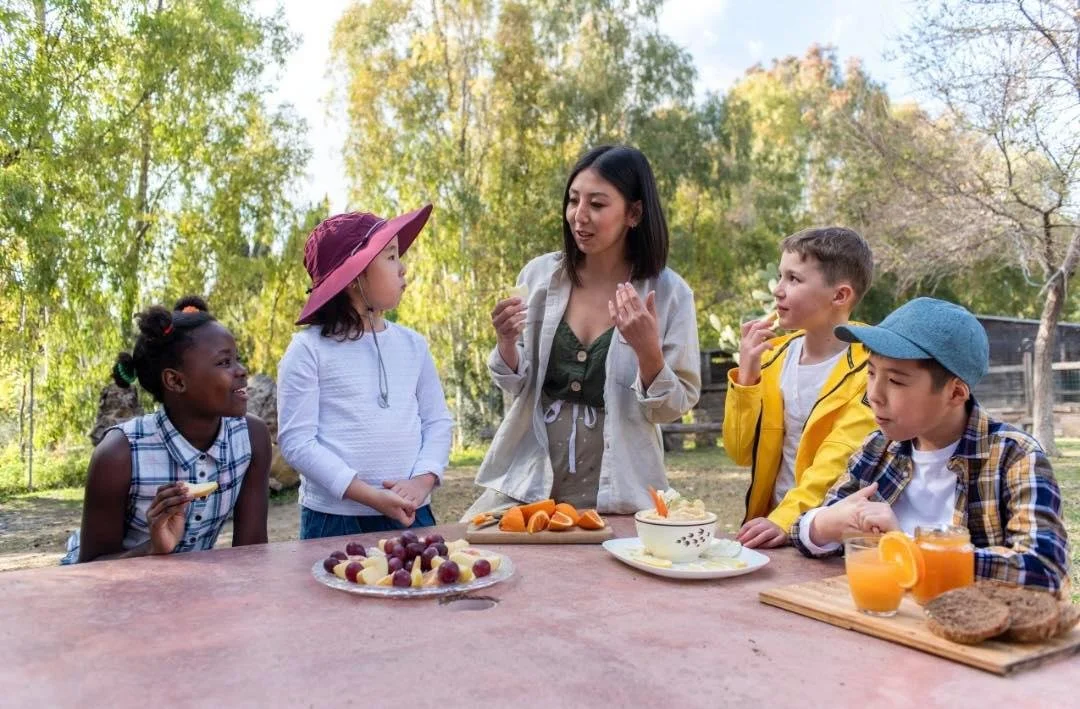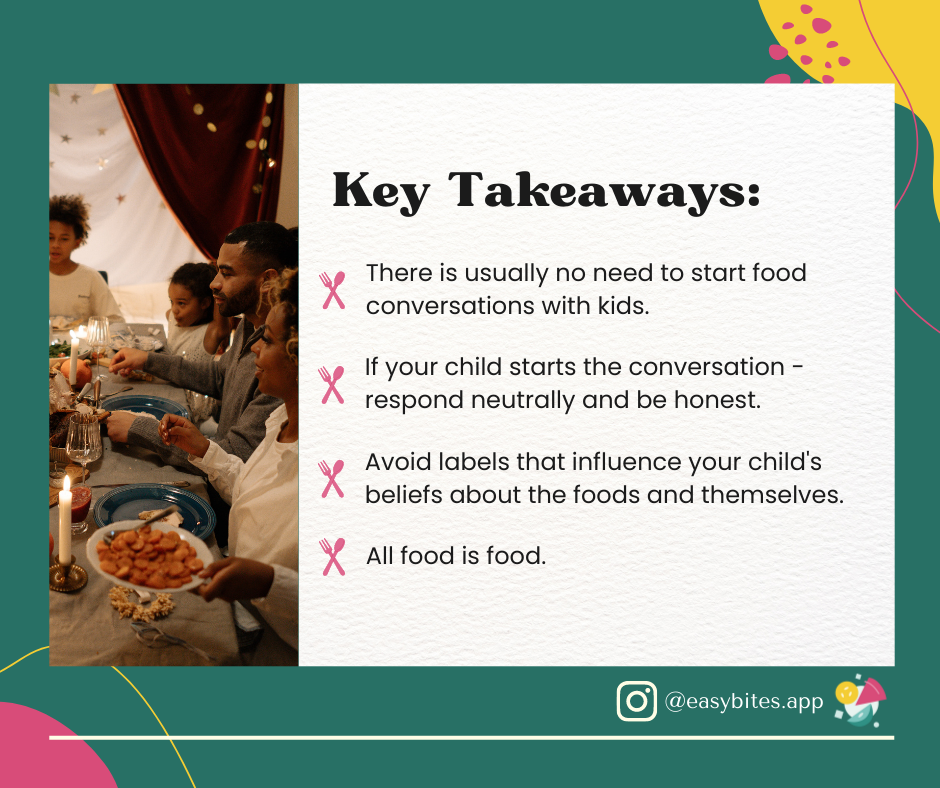How to Talk About Food with Children?
Using Responsive Feeding Approach
🐘 The Elephant in the Room: Food
So, how DO we talk about food?
There is a lot of fear and confusion surrounding food - what to say and what not to say.
In order to support your child's relationship with food, let's break down the basics. First, it's important to note that all food has a purpose regardless of whether you perceive it as "healthy" or "unhealthy."
💡 Rule 1: You don't need to talk about food.
We've all heard the phrase 'too much of a good thing is a bad thing.' Well, the saying stays true here as well.
Believe it or not, talking about food too much can often do more harm than good. This might be a surprise, especially at such a young age, but this can make your child feel a sense of pressure around food - which can actually tamper with their eating habits. (1, 2)
👩🏼🍳 Rule 2: Show don't tell.
At a young age, kids do not think rationally or logically. So, it is best to teach your kids through experience rather than trying to convince him/her to eat.
For example, if a coworker continuously spoke about how amazing her morning smoothies that she brings to the office are, and all the health benefits, it would probably get old really fast. But, if she brought in her smoothie every day and didn't harp on about it to you, you would be more inclined to want to try out her recipe.
The same thing goes for your child. Seeing and experiencing broccoli in their daily lives will be much more effective than hearing you tell them that "broccoli is good for you".
Especially considering that children have a hard time understanding abstract concepts like nutrition until their teen years! So, let your child learn at their speed and instead develop through experiences.
Remember, as a caregiver, your job is to make foods available and they will ask to try them when they are ready.
😇 Rule 3: Honesty is the best policy.
When your child begins to ask questions about food, respond honestly!
Be transparent about what is in their food and where it comes from. Don't label foods as "good" or "bad”. All food is food. Whether it is on the table for pleasure or nutrition, all food has a purpose. Especially for kids with a limited range of accepted foods, whatever foods they eat help them to be nourished. To prevent battles, avoid arguing against their point of view.
Instead, when your child comments on foods, simply repeat back what they are saying using neutral language. Avoid using terms like "yummy" or "tasty" - we all have different opinions on what tastes good or not. If you need to talk about food, stick to the sensory characteristics of the food instead, like crunchy, soft, dry, sweet, sour, big smell, orange or green, etc.
🫢 Rule 4: Don't ask if they like it.
This one might make you raise an eyebrow. Toddlers are constantly asked, "do you like…" but this is not helpful when it comes to food, and let me tell you why.
First off, learning to eat new foods takes time. It is a process, just like learning to ride a bike. Asking kids to make a decision when they try something new by asking if they like it pushes them to make up their minds too quickly.
Next, if kids respond with "yes" after being asked if they like carrots, carrots will be making an appearance at breakfast, lunch, and dinner. No one likes carrots THAT much! Lastly, if they haven't made up their mind yet, in their mind, the safer bet is to say "no," so that will be the decision made.
🤷♂️ Rule 5: Be aware of your surroundings.
Kids take in EVERYTHING! So, it is best not to talk about your child's eating within their hearing range. Avoid labeling them as "picky" or "fussy" to their face or others. Don't judge them or compare them to others.
I'm sure you have heard or even said something like, "why don't you eat as well as your brother." These types of comments can seem harmless, but over time they will slowly take a toll on their self-confidence.
✅ Key Takeaways
There is so much talk nowadays surrounding food - at the table, with friends, and in the media.
Children are always listening. But with a little know-how, we can confidently talk about foods in a way that supports our child's eating. And we can confidently not talk about food too!
Until next time,
Easy Bites
Galloway, A. T., Fiorito, L. M., Francis, L. A., & Birch, L. L. (2006). ‘Finish your soup’: counterproductive effects of pressuring children to eat on intake and affect. Appetite, 46(3), 318-323.
Daniels, L. A. (2019). Feeding practices and parenting: A pathway to child health and family happiness. Annals of Nutrition and Metabolism, 74(2), 29-42.



